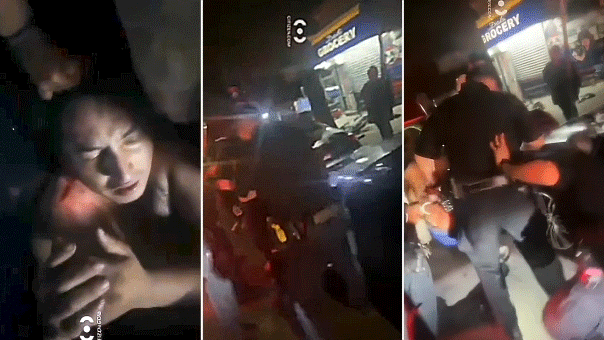Philippines - Level 2: Exercise Increased Caution
Reissued with obsolete COVID-19 page links removed. Exercise increased caution to the Philippines due to crime, terrorism, civil unrest, and kidnapping. Some areas have increased risk. Read the entire Travel Advisory. Do Not Travel to: The Sulu Archipelago, including the southern Sulu Sea, due to crime, terrorism, civil unrest, and kidnapping. Marawi City in Mindanao due to terrorism and civil unrest. Reconsider Travel to: Other areas of Mindanao due to crime, terrorism, civil unrest, and kidnapping. Country Summary: Terrorist and armed groups continue plotting possible kidnappings, bombings, and other attacks in the Philippines. Terrorist and armed groups may attack with little or no warning, targeting tourist locations, markets/shopping malls, and local government facilities. The Philippine government has declared a “State of National Emergency on Account of Lawless Violence in Mindanao.” Read the country information page for additional information on travel to the Philippines. If you decide to travel to the Philippines: Monitor local media for breaking events and adjust your plans based on new information. Avoid demonstrations. Enroll in the Smart Traveler Enrollment Program (STEP) to receive Alerts and make it easier to locate you in an emergency. Follow the Department of State on Facebook and Twitter. Review the Country Security Report for the Philippines. Visit the CDC page for the latest Travel Health Information related to your travel. Prepare a contingency plan for emergency situations. Review the Traveler’s Checklist. The Sulu Archipelago and Sulu Sea – Level 4: Do Not Travel Terrorist and armed groups continue to conduct kidnappings on land and at sea for ransom, bombings, and other attacks targeting U.S. citizens, foreigners, civilians, local government institutions, and security forces. The U.S. government has limited ability to provide emergency services to U.S. citizens in the Sulu Archipelago and Sulu Sea as U.S. government employees must obtain special authorization to travel to those areas. Visit our website for Travel to High-Risk Areas. Marawi City in Mindanao – Level 4: Do Not Travel Civilians are at risk of death or injury due to conflict between remnants of terrorist groups and Philippine security forces in Marawi. The U.S. government has limited ability to provide emergency services to U.S. citizens in Mindanao as U.S. government employees must obtain special authorization to travel there. Visit our website for Travel to High-Risk Areas. Mindanao – Level 3: Reconsider Travel The Philippine government maintains a state of emergency and greater police presence in the Cotabato City area, and in the Maguindanao, North Cotabato, and Sultan Kudarat provinces. Terrorist and armed groups continue to conduct kidnappings, bombings, and other attacks targeting U.S. citizens, foreigners, civilians, local government institutions, and security forces. The U.S. government has limited ability to provide emergency services to U.S. citizens in Mindanao as U.S. government employees must obtain special authorization to travel there. Visit our website for Travel to High-Risk Areas.

Reissued with obsolete COVID-19 page links removed.
Exercise increased caution to the Philippines due to crime, terrorism, civil unrest, and kidnapping. Some areas have increased risk. Read the entire Travel Advisory.
Do Not Travel to:
- The Sulu Archipelago, including the southern Sulu Sea, due to crime, terrorism, civil unrest, and kidnapping.
- Marawi City in Mindanao due to terrorism and civil unrest.
Reconsider Travel to:
- Other areas of Mindanao due to crime, terrorism, civil unrest, and kidnapping.
Country Summary: Terrorist and armed groups continue plotting possible kidnappings, bombings, and other attacks in the Philippines. Terrorist and armed groups may attack with little or no warning, targeting tourist locations, markets/shopping malls, and local government facilities. The Philippine government has declared a “State of National Emergency on Account of Lawless Violence in Mindanao.”
Read the country information page for additional information on travel to the Philippines.
If you decide to travel to the Philippines:
- Monitor local media for breaking events and adjust your plans based on new information.
- Avoid demonstrations.
- Enroll in the Smart Traveler Enrollment Program (STEP) to receive Alerts and make it easier to locate you in an emergency.
- Follow the Department of State on Facebook and Twitter.
- Review the Country Security Report for the Philippines.
- Visit the CDC page for the latest Travel Health Information related to your travel.
- Prepare a contingency plan for emergency situations. Review the Traveler’s Checklist.
The Sulu Archipelago and Sulu Sea – Level 4: Do Not Travel
Terrorist and armed groups continue to conduct kidnappings on land and at sea for ransom, bombings, and other attacks targeting U.S. citizens, foreigners, civilians, local government institutions, and security forces.
The U.S. government has limited ability to provide emergency services to U.S. citizens in the Sulu Archipelago and Sulu Sea as U.S. government employees must obtain special authorization to travel to those areas.
Visit our website for Travel to High-Risk Areas.
Marawi City in Mindanao – Level 4: Do Not Travel
Civilians are at risk of death or injury due to conflict between remnants of terrorist groups and Philippine security forces in Marawi.
The U.S. government has limited ability to provide emergency services to U.S. citizens in Mindanao as U.S. government employees must obtain special authorization to travel there.
Visit our website for Travel to High-Risk Areas.
Mindanao – Level 3: Reconsider Travel
The Philippine government maintains a state of emergency and greater police presence in the Cotabato City area, and in the Maguindanao, North Cotabato, and Sultan Kudarat provinces.
Terrorist and armed groups continue to conduct kidnappings, bombings, and other attacks targeting U.S. citizens, foreigners, civilians, local government institutions, and security forces.
The U.S. government has limited ability to provide emergency services to U.S. citizens in Mindanao as U.S. government employees must obtain special authorization to travel there.
Visit our website for Travel to High-Risk Areas.



